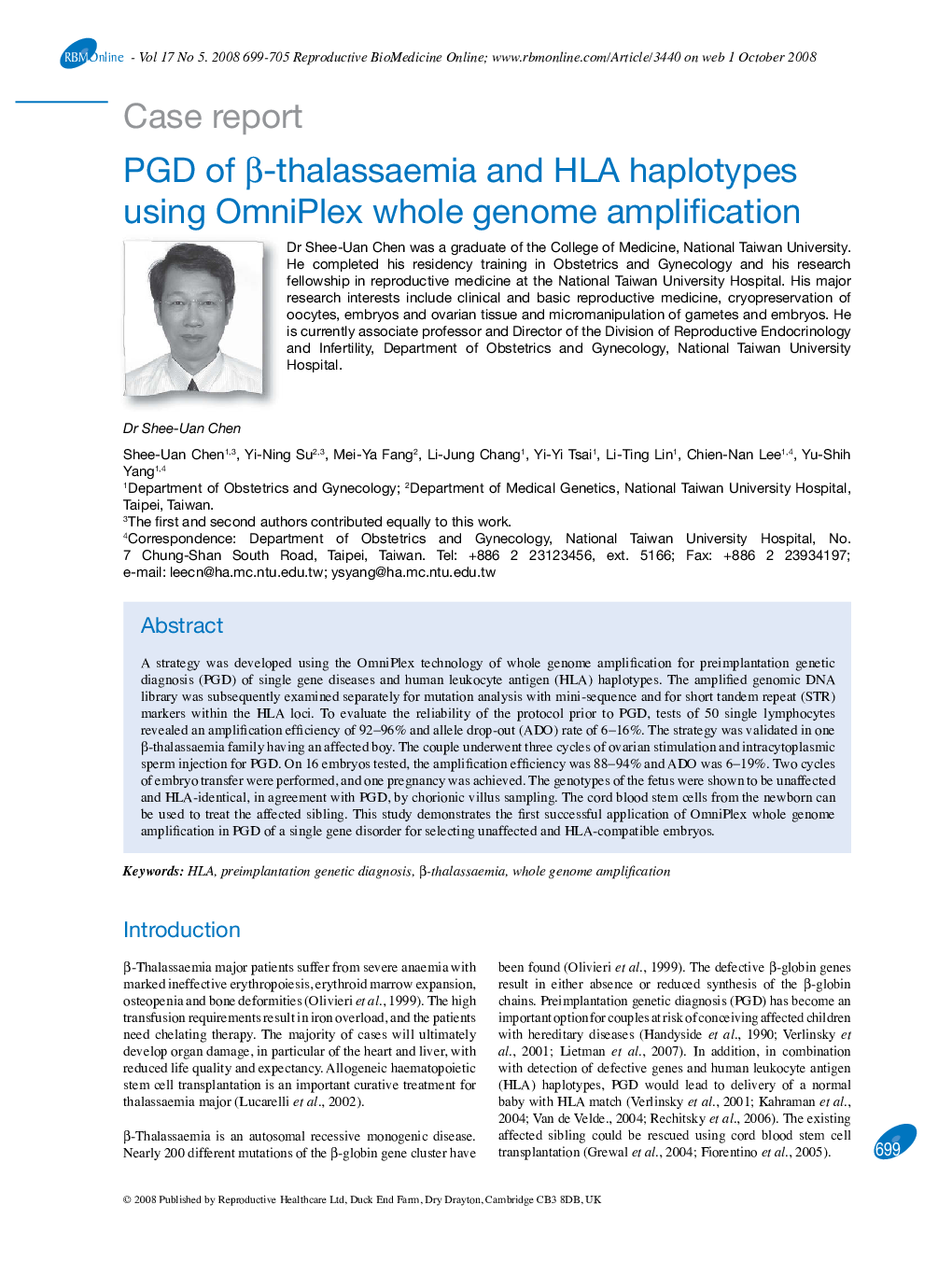| Article ID | Journal | Published Year | Pages | File Type |
|---|---|---|---|---|
| 3972358 | Reproductive BioMedicine Online | 2008 | 7 Pages |
A strategy was developed using the OmniPlex technology of whole genome amplification for preimplantation genetic diagnosis (PGD) of single gene diseases and human leukocyte antigen (HLA) haplotypes. The amplified genomic DNA library was subsequently examined separately for mutation analysis with mini-sequence and for short tandem repeat (STR) markers within the HLA loci. To evaluate the reliability of the protocol prior to PGD, tests of 50 single lymphocytes revealed an amplification efficiency of 92–96% and allele drop-out (ADO) rate of 6–16%. The strategy was validated in one β-thalassaemia family having an affected boy. The couple underwent three cycles of ovarian stimulation and intracytoplasmic sperm injection for PGD. On 16 embryos tested, the amplification efficiency was 88–94% and ADO was 6–19%. Two cycles of embryo transfer were performed, and one pregnancy was achieved. The genotypes of the fetus were shown to be unaffected and HLA-identical, in agreement with PGD, by chorionic villus sampling. The cord blood stem cells from the newborn can be used to treat the affected sibling. This study demonstrates the first successful application of OmniPlex whole genome amplification in PGD of a single gene disorder for selecting unaffected and HLA-compatible embryos.
